Like many other Jesuit institutions across the country, Georgetown University has officially disassociated itself from Greek life since the mid-1950s, with nothing seeming to signal an upcoming change in the university’s policy regarding Greek life. Nevertheless, fraternities and sororities continue to exist, each aiming to bring something different to the club culture that pervades Georgetown.
Ten percent of students belong to some form of Greek life, as estimated by the Georgetown University Student Association. Despite the university’s efforts to dissuade students from joining sororities and fraternities through an annual campuswide email, a steady student body interest in Greek life continues to exist. Out of this interest, the founding and chartering of half a dozen fraternities and sororities have taken place since 2000.
Of the factors that distinguish Greek life from clubs, community is one. Greek life fosters a different community than a typical club, according to Josiah Laney (SFS ’21), who is a member of Sigma Phi Epsilon.
“What’s great about the community is that everyone has their own reasons for participating in the group” Laney said. “It serves as a hub for you to meet people who you might never have interacted with had it not been for the organization.”
Greek life also offers a form of association distinct from typical clubs present around campus, according to Maurice Zekaria (SFS ’21), who currently serves as Jewish identity chair of Alpha Epsilon Pi.
“Greek life is a really welcoming environment, one that is not as selective like clubs are on campus,” Zekaria said. “We don’t reject people because we don’t think they’re going to fit in with the group.”
Additionally, Alpha Epsilon Pi is the sole Jewish fraternity on campus. Jewish students in U.S. universities used to feel excluded from general fraternities, according to The Washington Post. In this way, Greek life also fosters an alternate form of association for groups that may be minorities on campus, according to Zekaria.
“[The fraternity] is a huge part of Jewish life on campus,” Zekaria said. “It allows Jewish life to thrive on campus, with us being able to host events like Sukkot and Purim on campus.”
Alpha Epsilon Pi is not, however, the only religious fraternity. Knights of Columbus is a university-recognized Catholic service fraternity.
All founded after 2000, most fraternities and sororities are socially oriented organizations on campus, including fraternities like AEPi, SigEp and Sigma Alpha Epsilon and sororities like Kappa Alpha Theta and Kappa Kappa Gamma. While these forms of Greek life offer a more social environment that aims to create connections and bonds for life, they are also all philanthropic organizations that advance specific causes, according to Kyle Dudzinski (SFS ’21), who currently serves as the consul of the Sigma Chi colony at Georgetown.
Sigma Chi recently worked with the Huntsman Cancer Institute to raise money for cancer research, Dudzinski said. This past week, Sigma Chi hosted a series of events called Derby Days across campus, with all proceeds benefiting cancer research.
“We have a community service requirement that we fulfill not because we have to but truly because we want to make a difference, so we always emphasize our philanthropy, and that serves as a big part of our vision,” Dudzinski said.
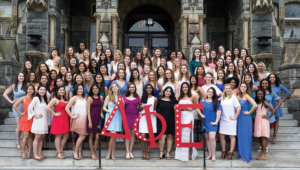
Not all forms of Greek life on campus revolve around the social aspect. Alpha Phi Omega, a rare university-recognized fraternity, is a co-ed service fraternity dedicated to furthering community service in the Washington, D.C. area. Delta Phi Epsilon is a internationally focused professional sorority that seeks to help women pursue global careers. DPE, along with other forms of professional Greek life, emphasizes professional development and networking for future career opportunities in a way that cannot be found in other clubs, according to Tala Alrajjal (COL ’19), a member of DPE.
“DPE has been so crucial to my professional development. When I was an underclassman, I was mentored by some amazing and very accomplished upperclassmen who taught me the ins and outs of LinkedIn, cover letters, industry exploration and beyond,” Alrajjal said. “It’s great to have a space like DPE where similarly minded and ambitious women really build each other up.”
Although there is an array of it on campus, Greek life is still mostly relegated to playing second fiddle to Georgetown-associated clubs. In many ways, clubs on campus have come to play the role that Greek life typically plays on other universities across the country. The history behind Greek life, however, proves that it does not have to exist in the shadows at Georgetown.
“We are tapping into that past legacy, while also starting our own,” Dudzinski said. “That’s very valuable and something that nothing else on campus can offer.”


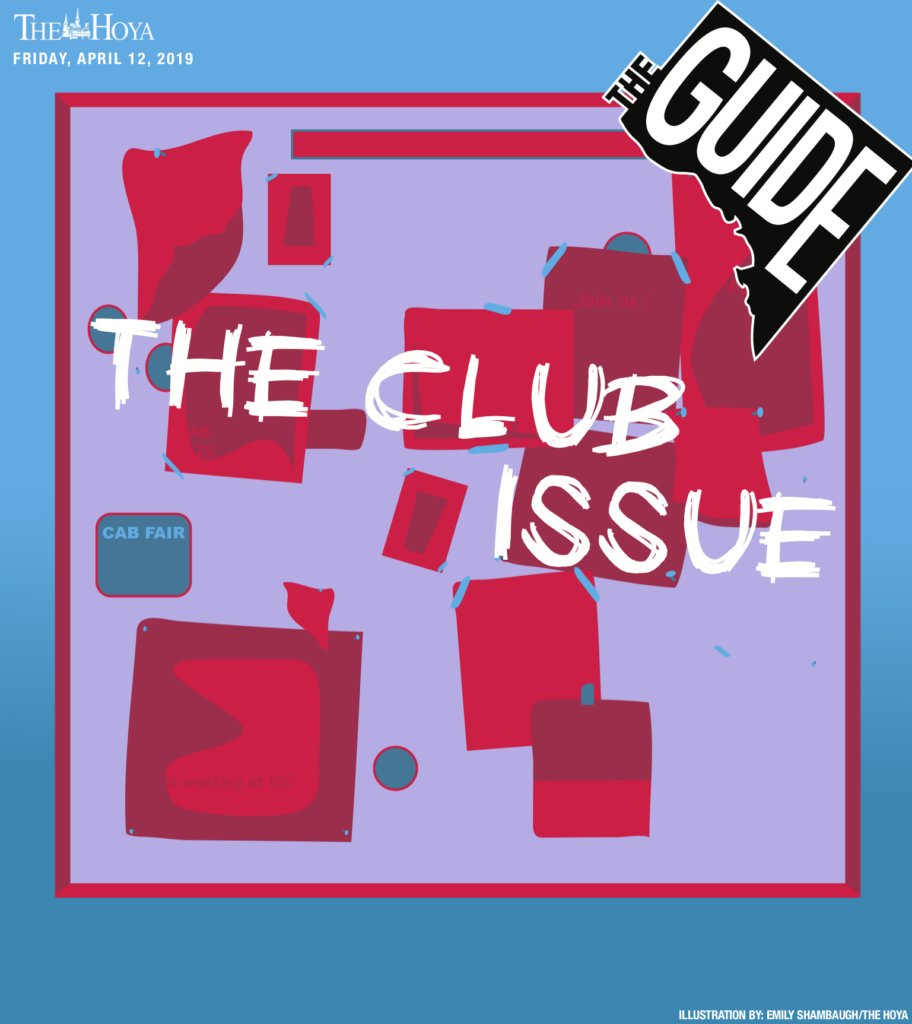
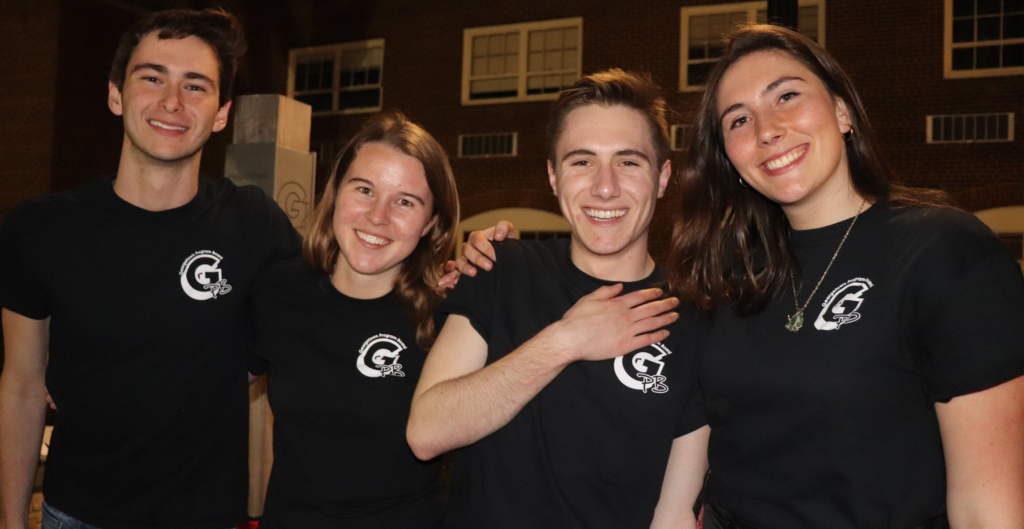

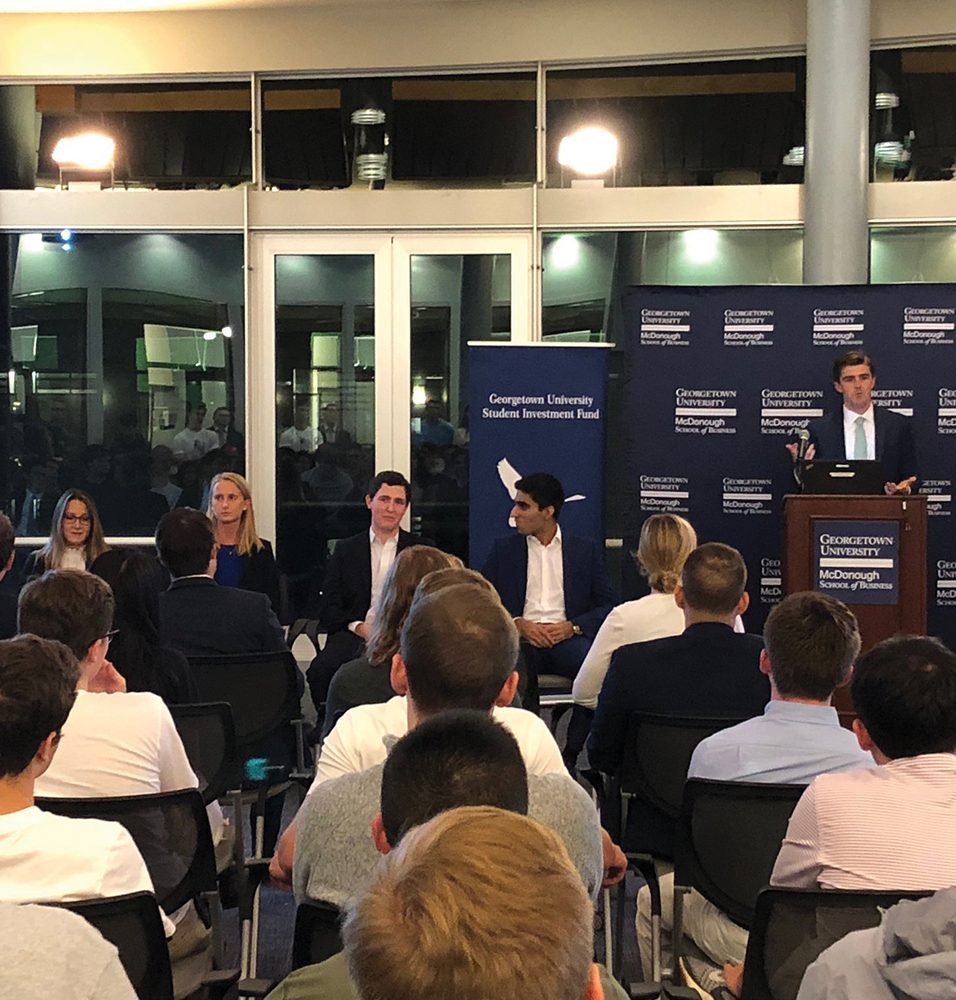
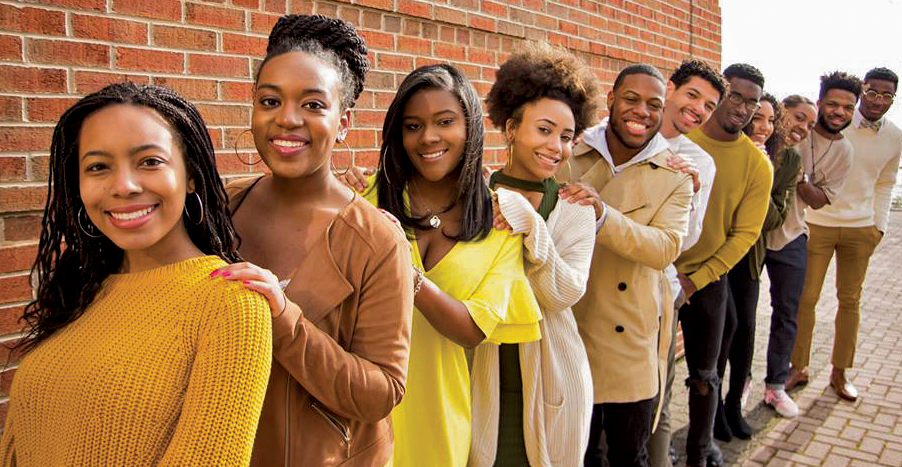
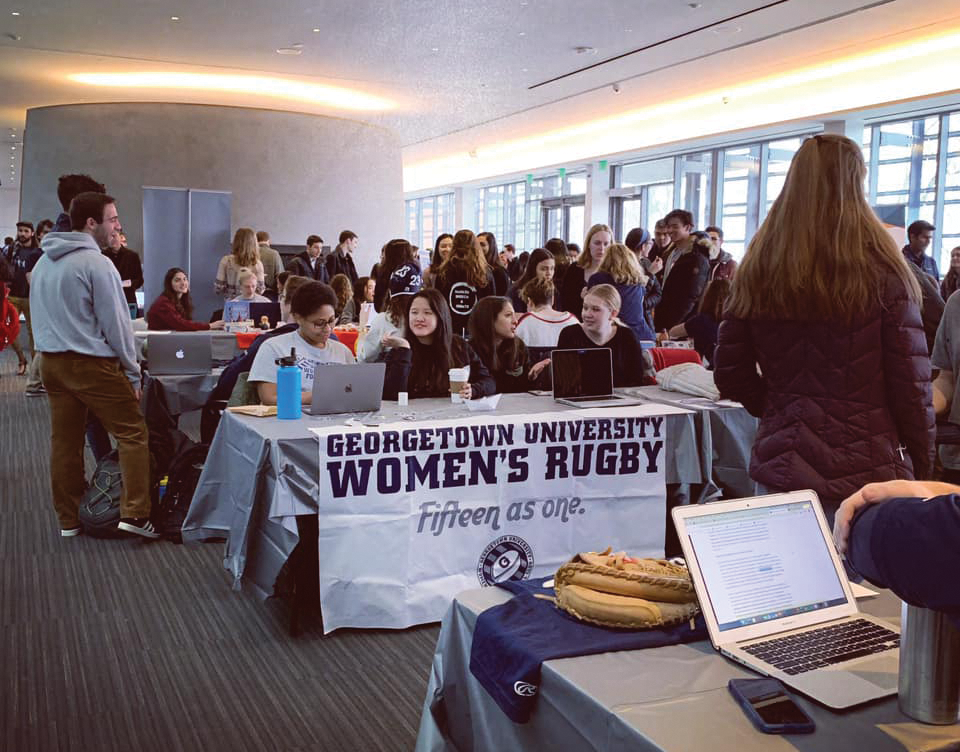












annoyedalum • Apr 13, 2019 at 2:19 pm
you all do realize there are also black & latinx sororities & fraternities on campus too, right?? please have some range. you all really didn’t think to include their voices? do better journalism. do better in general.